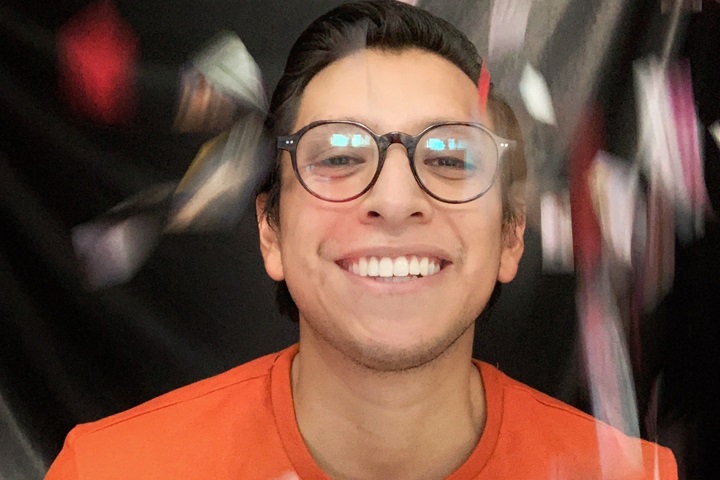Tell us about your career at Kantar.
I'm part of the Marketing team in Mexico. My career started as an intern and three months later I was offered a full-time job. I am involved in the design of client material as well as working on campaigns like BrandZ and organising our client event Kantar Talks. I am proud to belong to a team where what matters is the talent you have and the fresh ideas you put on the table. We believe that all people are an inspiration. After all, that's Kantar’s mission: Understand people, inspire growth.
How easy do you find it to talk about your sexuality at work? What barriers still exist?
Talking about sexuality at work can be a difficult topic.
There are barriers like fear of the unknown and the fear of breaking stereotypes that society has imposed. We need to create working cultures where people can be open about their sexuality without fear of what others will say, embracing diversity, respecting the opinion of all collaborators, listening to their stories and reflecting on the privileges that some people have. Talking about these issues at work can help others who in their close circles don't accept them as they are.
What does Pride mean to you and how have you marked the occasion this year?
Pride for me means color, love, respect, equity and human rights to everyone in the LGBTQI+ community. It's a celebration in which everyone is welcome: trans, queer, non-binary people, two spirits —who are the people who have the least representation— and allies. This year when I heard that the Prides for around the world were not going to take place, I had a feeling of nostalgia and sadness. However, the purpose behind Pride does not go away. Love in the community motivates us to fight for people who are targeted for being who they are and to demand the rights that many people around the world don't have. Although COVID-19 is not letting us shout it on the streets this year, we will always find the spaces to be able to shout about human rights!
One of my highlights was Pride week in Mexico last year. We launched an internal campaign to reinforce the importance of having an inclusive environment that promotes pride not only for LGBT+ community but taking pride in everyone’s own uniqueness.
We organised daily activities which included talks about the Stonewall Riots 50 years ago, streamed the documentary “Stonewall forever” for all employees and at the end of the week the Pride committee in partnership with the NGO Mosaico Down AC created the Pride brunch, which through ticket sales raised money for the foundation.
How active is the LGBTQI+ community at Kantar?
In the last two years, since we started using Workplace and the creation of the Pride@Kantar network, the participation of the LGBTQI+ community has been significant. Colleagues know that they can express themselves and be how they are without the fear of being judged. The Pride@Kantar group is a great space for communication and ideas in which you can learn from others, share stories, and most importantly feel safe and confident. Personally, in Pride@Kantar I have found a place where I can express myself and feel protected and I really appreciate it.
What does a good ally look like to you and how can we learn to be better?
A good ally for LGBTQI+ has to be a person who defends you from comments that incite discrimination when you are not present. They educate and guide others on the diversity that exists in the world. They listen and learn from your experience. A good ally is empathetic and shares their knowledge with their family, work colleagues, children and friends.
How do we stand together for equality and promote intersectionality?
The Black Lives Matter movement has always been important. It's not about posting a black box on your Instagram feed.
We must take these movements seriously and not just look at how they are happening. We have to go further and ask ourselves: how did it all start? What am I doing to help? Sometimes small actions count more than a "like" on your photo.
